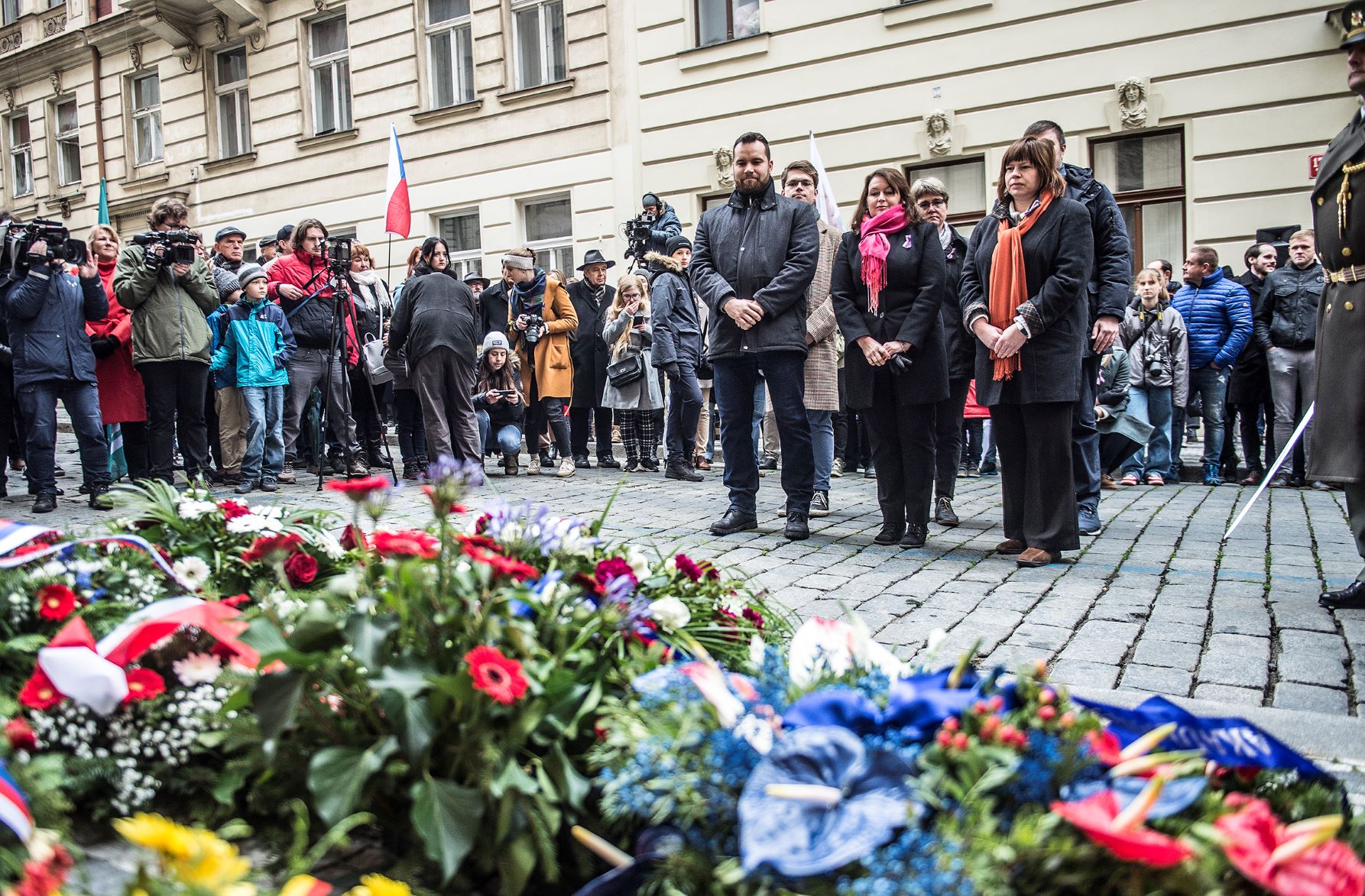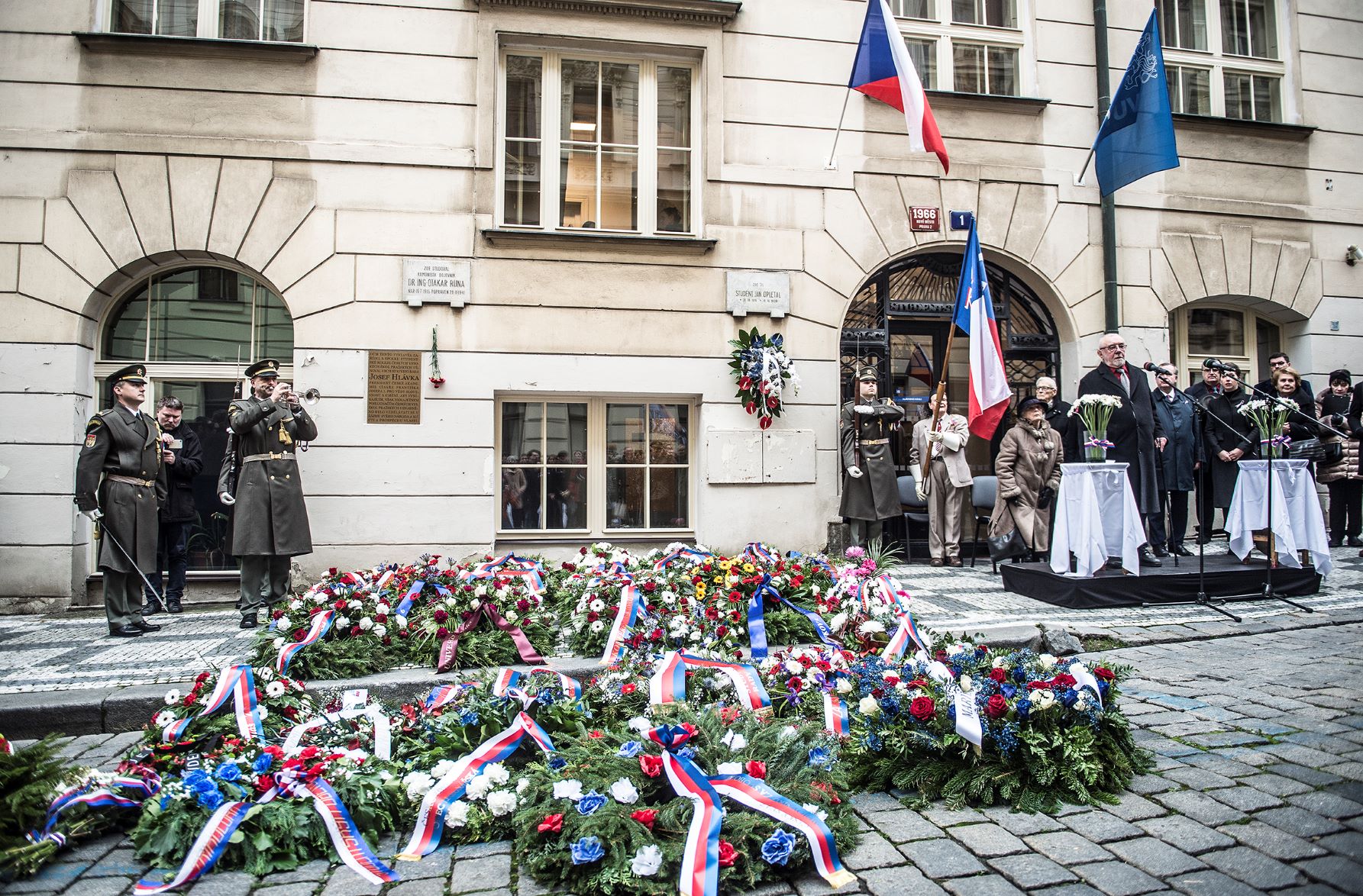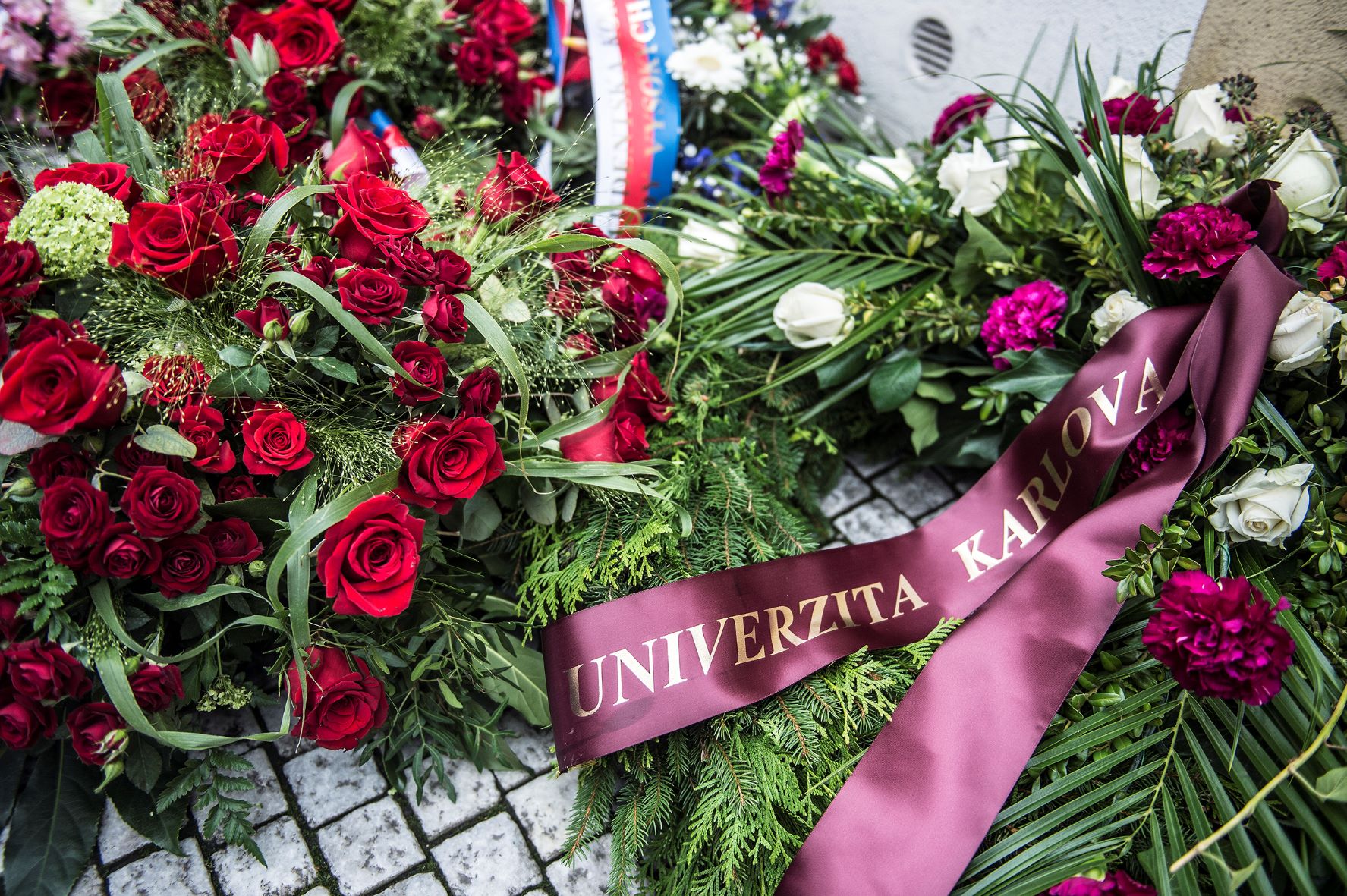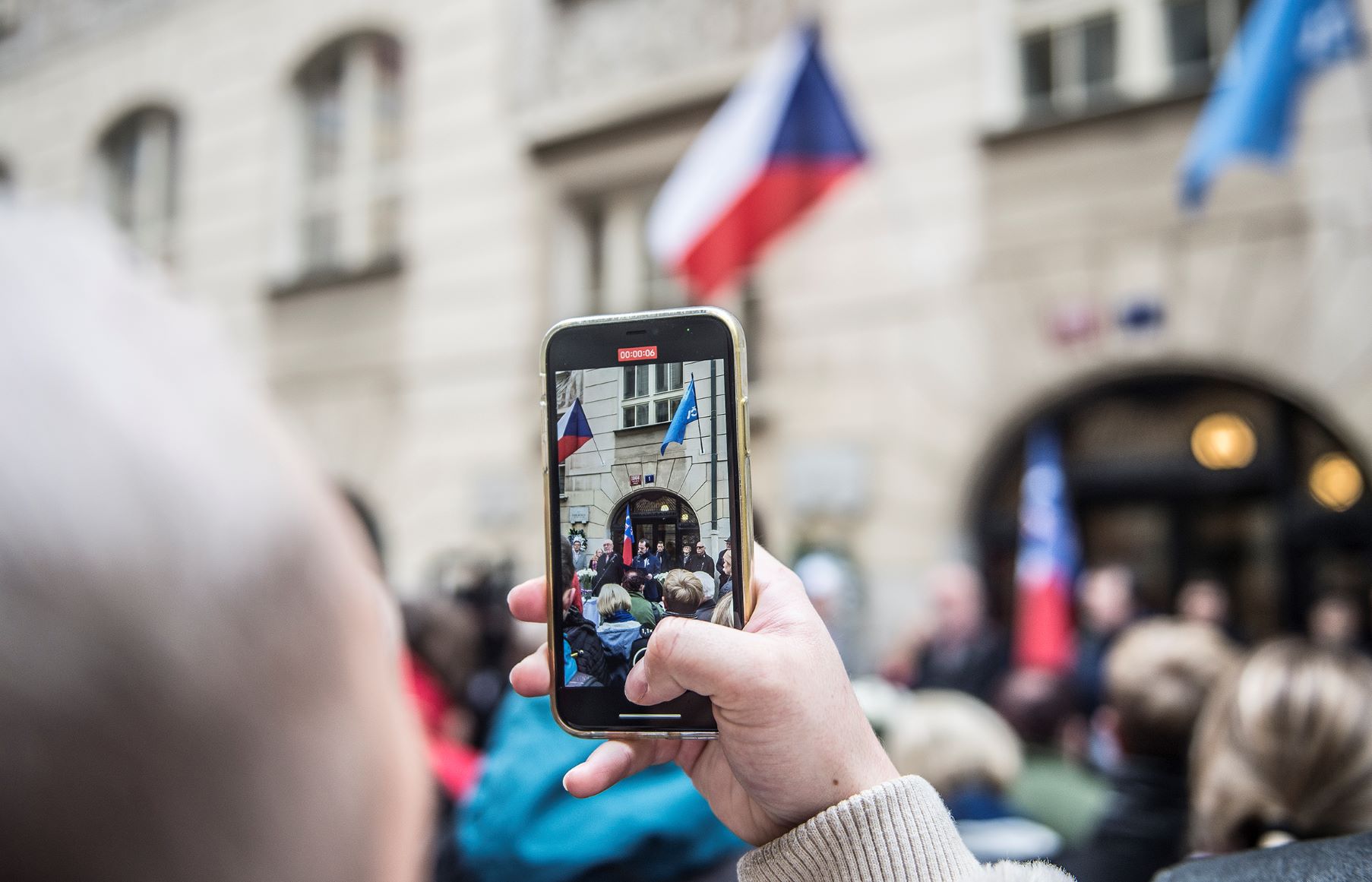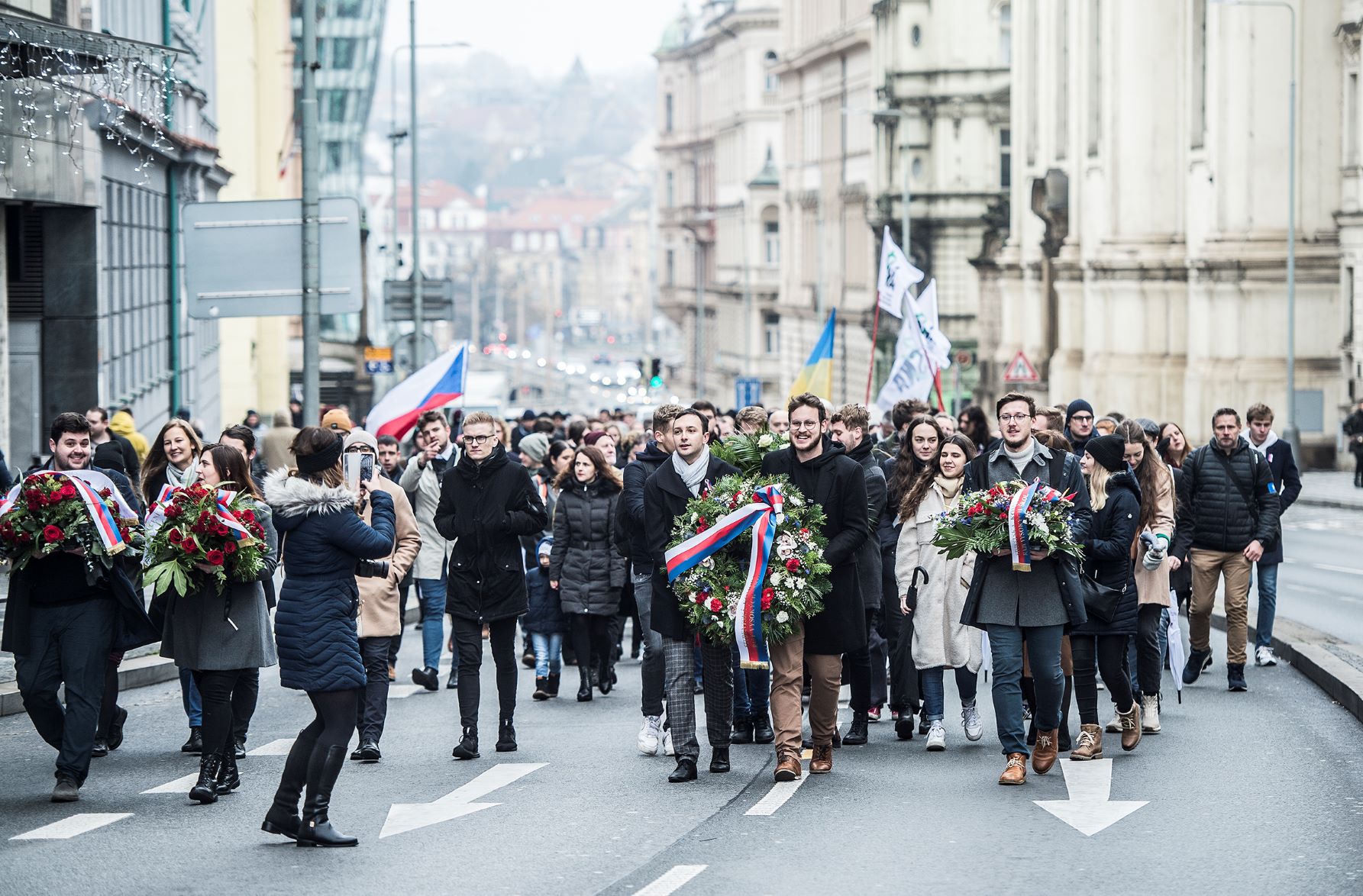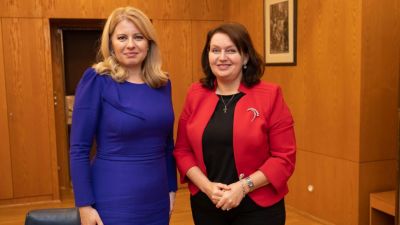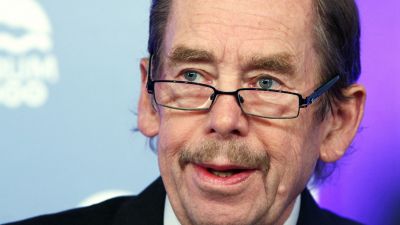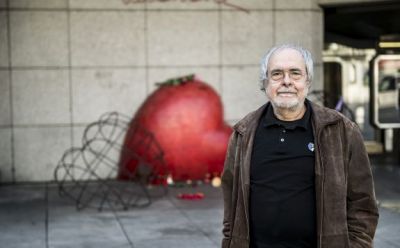The legacy of two dates in Czechoslovak history, 17 November 1939 and 1989, was commemorated on Thursday by students, teachers and representatives of Charles University. “We are gathering together to honour the memory of the students and their brave fight for freedom,” CU Rector Milena Králíčková said.
Representatives of the universities, the Academy of Sciences of the Czech Republic, the political representation and, of course, student organisations gathered at nine o'clock in the morning at Hlávka College in Jenštejnská Street in Prague. The annual gathering was held here to commemorate students and teachers arrested by the Nazi occupiers in 1939. Then, more than twelve hundred students were deported from the student dormitories to the Sachsenhausen concentration camp. This raid was preceded by the suppression of a demonstration in Prague on 28 October, during which a young worker, Václav Sedláček, was shot dead in Žitná Street and a student official, Jan Opletal, who lived in Hlávkova College, was fatally wounded.
“We are gathering here to celebrate together with a symbolic ceremony, flowers, words and music the memory of the murdered students and their brave fight for freedom,” said the rector of Charles University, Milena Králíčková, and recalled that Hlávka College was a refuge for poor students, built thanks to the patronage of its benefactors, especially Josef Hlávka, on the land of the closed St. Wenceslas Hospital. “The events of 1939 are closely connected with this college and speak very strongly to today. The courage and determination of those who subscribed to the ideals of T. G. Masaryk's First Republic and made it clear that they understood Europe as a space of equal free states is still a living legacy,” she added.
“We recall these events to warn against the danger of a new fascism and Nazism," said Václav Pavlicek, chairman of the board of trustees of the Josef, Maria and Zdeňka Hlávka Endowment, adding that the bravery of Czech students and their solidarity with them led two years later (16 November 1941) to the proclamation in London of 17 November as International Student Day - the only holiday of international significance that is of Czech origin.
“This day determined the basic direction of life for several generations and showed them the meaning of true freedom,” said Eva Zažímalová, President of the Academy of Sciences of the Czech Republic. She also recalled the international reaction to the persecution of students and academics under the Protectorate of Bohemia and Moravia, when, for example, Oxford University and other foreign universities offered Czech students the opportunity to study on their soil.
“Lest it be like in Karel Kryl's song about the unknown soldier, where he sings: 'One day the gentlemen will settle down and come to cry', let us reflect on what lessons we can draw from today's moment,” Vojtěch Petráček, Rector of the Czech Technical University in Prague, said in his speech. He highlighted the role of independent universities, which have been able to create an independent and rational view of the problems of society and find solutions to them. “That is why they were and are a thorn in the side of undemocratic regimes and populists. It is up to each one of us, members of the academic community, to move in a direction that helps to remove fears and anxieties, to explain problems and find solutions. It is understandable that in uncertain and difficult times such as those we are experiencing now, fear and apprehension weigh on all of us. But with a rational and humane approach we can dispel them. In doing so, we strengthen the foundations of the peaceful order of a democratic society and close the way for those who profit from fear and uncertainty to create chaos. Autocratic regimes grow out of chaos, frustration and fear,” the CTU Rector warned.
The memorial assembly was also attended by a representative of the European Students' Union, the President of the Student Chamber of the Council of Universities, and especially Zdeňka Valouchová, daughter of Robert Váňa, a Czechoslovak army officer and later a gendarmerie commander and resistance participant, who was murdered by the Nazis in early 1945. She mentioned the importance of recording the memories of the witnesses of historical events so that they reach the current young generation.
After the final laying of wreaths in front of the Hlávka College, accompanied by choirs and the national anthem, the procession made its way to Žitná Street to the memorial plaque of Jan Opletal. Shortly after 12 pm, the Charles University Choir sang the Czechoslovak national anthem with the then Slovak ending, and followed it up with the unofficial student anthem Gaudeamus igitur. The highest representatives of Czech universities then took the stage and the first to speak was the Rector of Charles University, Milena Králíčková.
“The last few months have brought several major life events and crises that we have all had to deal with, first the Covid pandemic and then the war in Ukraine. That is why I want to thank all the students who have volunteered and are volunteering to help. I am proud of their involvement,” she said. “We are currently facing several crises, including the climate crisis, and we as representatives of public institutions have a duty to engage in the debate about their future. Freedom is a precious gift that we celebrate here today and I thank you for coming,” Milena Králíčková concluded.
Memories of November 1989 in the Forum special
Two years ago, on the 30th anniversary of the events of 1989, the editors of Forum prepared a special issue in Czech and English, in which they recalled the events of that time in the form of memories of important witnesses and key figures. It includes interviews with former students, including Šimon Pánek, the late Jan Sokol, and President Václav Havel's personal secretary Vladimír Hanzel. Past rectors at Charles University also provided insights. The content of the special issue is available for download and reading in the PDF archive.



